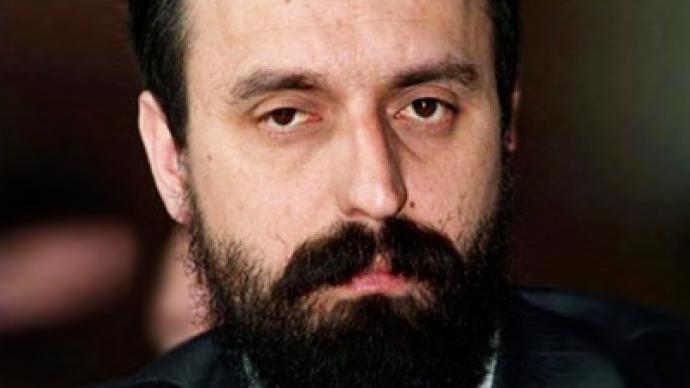Serbian authorities have arrested Goran Hadzic, the last remaining fugitive sought by the war crimes tribunal for the former Yugoslavia. Hadzic will be transferred to The Hague within several days.
Hadzic, 52, was the leader of Croatia's rebel Serbs during the country's 1991-1995 war. He has been indicted for 14 counts of war crimes and crimes against humanity in 2004 and had been on the run ever since.The arrest, first reported by local media, has been confirmed by President Boris Tadic during a news conference. He said the Hadzic was hiding in the Serbian mountainous region which borders Croatia on Wednesday morning. According to the RIA Novosti news agency, a special court in Belgrade held that all the conditions have been fulfilled to effect Hadzic’s transfer to the international tribunal. Hadzic will be transferred to The Hague as soon as judicial procedures are completed in Serbia, which normally takes several days. Hadzic will then be brought before a judge to hear a reading of the 14 charges against him. He may enter a plea or delay for a month.Moscow expressed hopes the trial of Hadzic will be unbiased.“We hope the upcoming trial of Goran Hadzic will be objective and unbiased, and it will not be used to slow the work of the International Tribunal for the former Yugoslavia," Konstantin Dolgov, the Russian Foreign Ministry's commissioner for human rights, democracy and the supremacy of law, said on Wednesday.The EU and NATO said they welcomed Hadzic’s arrest and expect his swift handing over to the Hague Tribunal.The UN tribunal for Yugoslavia welcomed the arrest of the last man on its wanted list from the Balkan wars, saying it moves the war crimes court closer to the end of its task.And UN chief Ban Ki-moon, who also welcomed the end of the seven-year manhunt, said it will allow the International Criminal Tribunal for the former Yugoslavia, to focus on the completion of its mandate.Goran Hadzic’s arrest comes less than two months after the capture of another high-profile war crime suspect, Ratko Mladic. It apparently clears Belgrade from the blame that in fails to do enough to find alleged criminals of the 1990s Balkan wars. This was one of the key barriers to consideration of Serbia’s possible membership of the European Union.Aleksandar Pavic, a political analyst based in Belgrade, says opposition in Serbia believes the arrest has been timed for political gain.“Opposition here believes that it’s all part of the election campaign. [The] parliamentary election is due here early next year. Many in the opposition think this is all to get some points from the EU. The current government is desperate to get the candidacy and the negotiations on the EU accession,” he explained.Some experts say if Belgrade had the choice of whether to arrest Radic and Hadzic or to let them live in hiding, its opting for the former may have been a mistake, strategically-speaking.“There was a break of law and order [in Yugoslav Croatia] and a civil war, and the Hague Tribunal has been trying to turn this into a joint criminal enterprise planned by Serbia to conquer parts of Croatia. This accusation, in my view, is complete nonsense. So by co-operating with The Hague on it, Belgrade is in a sense only lending credence to this very biased view of the breakup of Yugoslavia,” John Laughland, director of the Paris-based Institute of Democracy and Co-operation told RT.
Balkans expert Marko Gasic told RT it has become customary to accuse Serbs of committing atrocities and genocide while hiding the real criminals. According to Gasic, Goran Hadzic was pursued for 13 years after allegedly committing atrocities because the international tribunal could not stand having even one Serbian leader left untouched.“They basically forgot about him, because he was not a significant player. If they did not indict him, then there would be one Serbian leader who was not accused of being a criminal, and that would be inconvenient,” explained Gasic. “They have to accuse all the Serbs, all their leadership. They accused him of things they have no evidence he was involved in. Serbs are accused of genocide all the time.”Gasic believes Hadzic’s arrest will not get Serbia any closer to EU membership.
Serbia may have fulfilled many of Brussels’ requests, but now, after the arrest of Goran Hadzic, Belgrade can only hope that the EU will keep its promise on EU membership for Serbia, says Serbian journalist and political analyst Borislav Korkodelovich.“There will be a sort of a pause after Croatia gets EU membership in 2013,” predicted Korkodelovich. A Dutch newspaper reported that the next wave of EU enlargement may only take place in 2030, which if true, Korkodelovich said, will require Belgrade to develop “particularly economic relations with as many countries as possible, be they Russia, China, Latin American or African countries.”

